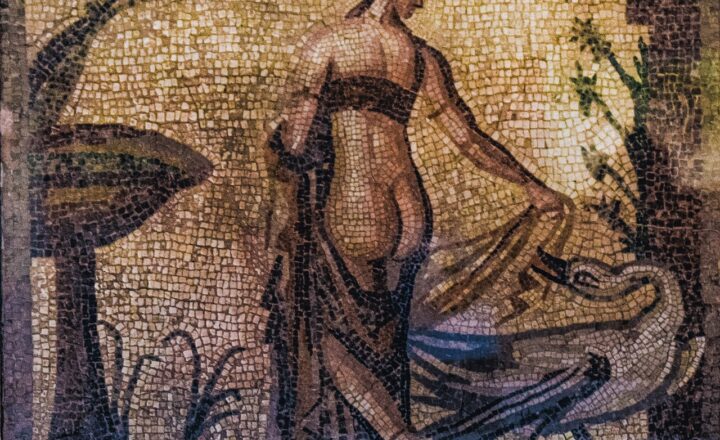The Lost City of Atlantis: Myth or Forgotten Civilization?
November 14, 2024

The legend of the Lost City of Atlantis has captivated historians, archaeologists, and curious minds for centuries. From ancient philosophers to modern adventurers, the tale of an advanced civilization that mysteriously vanished beneath the waves has sparked debates and intrigued those seeking the truths buried in the depths of our oceans. In this comprehensive exploration, we will delve into the origins of the Atlantis myth, the various theories surrounding its existence, and the ongoing search for evidence that may prove or disprove its reality.
1. The Origins of the Atlantis Legend
The first recorded account of Atlantis comes from the ancient Greek philosopher Plato, who mentioned it in his dialogues “Timaeus” and “Critias” around 360 B.C. According to Plato, Atlantis was a powerful and advanced civilization that existed about 9,000 years before his time, located beyond the Pillars of Hercules, which we now know as the Strait of Gibraltar.
Plato described Atlantis as a large island with a paradise-like environment rich in resources, engineering marvels, and a sophisticated society. However, due to moral decay, greed, and a thirst for power, this great civilization fell out of favor with the gods and was ultimately swallowed by the sea in a cataclysmic event, disappearing without a trace.
2. Interpretations and Speculations
As the story of Atlantis spread, various interpretations have emerged. Some view it purely as a cautionary tale, while others believe it holds historical truths. Scholars have proposed numerous theories about the potential location of Atlantis, including:
- Santorini (Thera): The volcanic eruption of Thera around 1600 B.C. decimated the Minoan civilization, leading some to suggest that this catastrophic event inspired the Atlantis story.
- Crete: The Minoans, who thrived in the Mediterranean, exhibited advanced technology and architecture, making them possible candidates for inspiration behind the Atlantis legend.
- Antarctica: Some conspiracy theorists and alternative historians propose that Atlantis is hidden beneath the ice of Antarctica, suggesting that a civilization could thrive there long ago before climate change transformed the region.
- The Caribbean and the Bahamas: Several researchers speculate that the remnants of Atlantis might lie submerged in the waters near the Bahamas or in the Caribbean, based on unusual underwater structures and archaeological finds.
3. Archaeological Pursuits: The Search for Atlantis
Despite the lack of concrete evidence, the quest for Atlantis has inspired countless expeditions and archaeological studies aimed at uncovering proof of its existence. Notable discoveries that fuel speculation include:
- Underwater Structures: Various submerged formations, such as the Bimini Road in the Bahamas, resemble man-made structures, leading some to believe they could be remnants of Atlantis.
- Ancient Stories: Global myths of great floods and lost civilizations found in diverse cultures support the idea that the tale of Atlantis may stem from true events experienced by ancient peoples around the world.
- Geological Studies: Geologists have analyzed regions near the Mediterranean and Atlantic for tectonic activity and past tsunamis, which could have contributed to the disappearance of a coastal civilization.
While some researchers claim that Atlantis is a metaphor or allegory rather than a historical fact, exploration continues as satellite imaging and modern underwater archaeology unveil more of our planet’s mysterious past.
4. Atlantis in Popular Culture
The legend of Atlantis has permeated modern culture, appearing in films, literature, music, and video games. From Disney’s animated “Atlantis: The Lost Empire” to various novels that reimagine Atlantean lore, this myth captures the imagination of creators and audiences alike. Its influence extends beyond entertainment, encouraging an exploration of ancient myths in relation to contemporary narratives about environmentalism, societal advancement, and the consequences of hubris.
Whereas many regard the story of Atlantis as a mere myth, its recurring themes resonate with the challenges faced by modern civilizations, inviting reflection on morality, environmental sustainability, and the balance between progress and responsibility.
5. The Legacy of Atlantis: Lessons for Humanity
Whether or not Atlantis was a real place, its legend serves as a reminder of the need for self-reflection and the importance of ethical governance. The tale emphasizes:
- The Dangers of Excessive Ambition: The fall of Atlantis warns against unchecked ambition and the relentless pursuit of power and wealth at the expense of ethical values and sustainability.
- The importance of Balance: The rise and fall of civilizations throughout history illustrate that harmony with nature and social responsibility are critical to long-term survival.
- Collective Memory: The story of Atlantis encourages societies to preserve their history and culture to learn from past mistakes to build a better future.
In conclusion, the Lost City of Atlantis may reside in the annals of myth or hint at historical truths waiting to be rediscovered. As we continue exploring our world and its past, the legend serves as a beacon of inquiry that bridges the gap between myth and reality, reminding us of the consequences of human actions and the importance of safeguarding our civilization against its own hubris.
Conclusion: Myth or Reality?
Ultimately, whether Atlantis was a real place or a cautionary tale spun to convey moral lessons, the story endures and continues to invoke curiosity. As archeologists dive deeper into ocean mysteries and historians scrutinize ancient texts, the quest for Atlantis represents humanity’s enduring desire to uncover truths about our existence, our civilization, and the potential threats hovering beneath the surface of our societies. The allure of the Lost City of Atlantis signifies more than just an ancient legend; it embodies our instinct to seek knowledge and understand our worlds far beyond our perceived boundaries.






